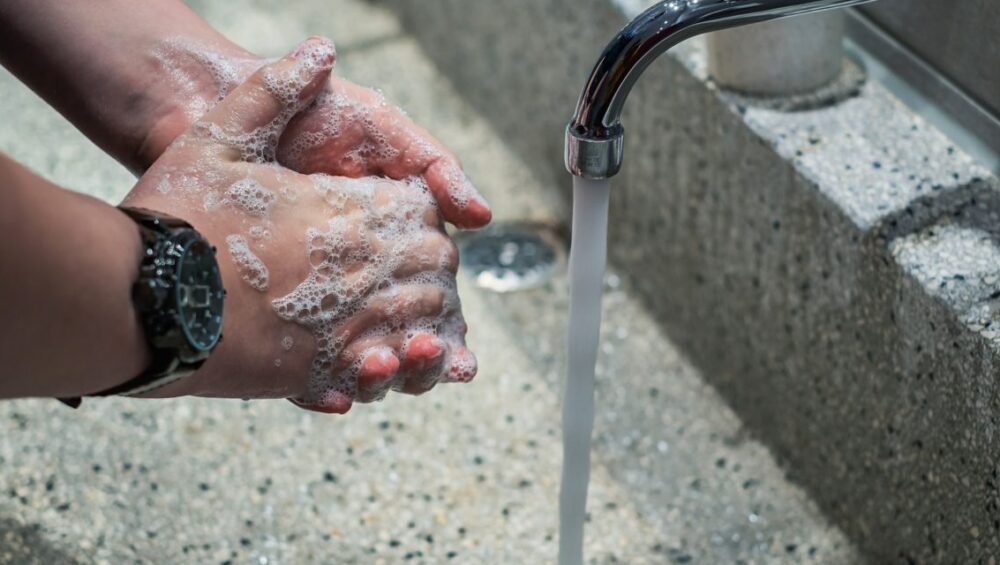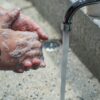What even happens to the water that runs down your drain once you rinse your hands? If you aren’t conscious of where it goes and respect the water you use, will it come around to bite your hind-side?
We assure you, it will. As for the first question, read on.
To put it quite simply, the water in our homes come from one of two sources – groundwater (different kinds of wells) or surface water (lakes, rivers etc). These sources are constantly replenished by rainwater. The water we use to bathe, wash our hands and clothes, once drained, becomes a part of the greywater pipeline. This is then partially treated and released into the water bodies which, in time, evaporates and falls as rain to become the water we use again. It goes without saying that it is solely our responsibility as humans to regulate the water we send back into the earth by being conscious of the soaps and detergents we consume.
Industrially manufactured soap bars, liquid soaps and detergents have become a cause for personal concern for two reasons mainly –
- Unwanted chemicals increase toxicity of the groundwater and aquatic ecosystems
- They alter the pH and diminish the fertility of the soil around us
These effects are simply from the usage of soaps and detergents by the consumer. The environmental effects from the manufacturing and production of non-biodegradable soaps and detergents are of a larger scale and include –
- Volatile organic emissions during production
- Increased dust emissions in the surrounding areas
- Spillage during transport which causes serious health and environmental concerns
As owners, looking to run a social enterprise that is eco-friendly and sustainable, we shifted to using natural substitutes many years ago. When we made this shift in our homes, in a few months we found earthworms in the uppermost layer of soil in our garden. Earthworms aerate the soil to increase its fertility and that was the first sign that we were finally doing something right for the world around us.
Here’s what you need to consider before buying soaps / detergents:
1. Buy NATURAL : Make sure the products you buy are made from natural ingredients.
2. Buy soap bars instead of liquid body wash : Replace plastic packaged liquid soap with natural soap bars – they last longer and they don’t harm the environment.
3. Check soap ingredients : Check for SLS (aka sodium lauryl / dodecyl sulfate), parabens (which include methylparaben, propylparaben, and butylparaben), fragrances, and dyes which cause moderate aquatic toxicity.
4. Check detergent ingredients : Check for phosphates, phosphonates or percarboxylates as enhancers – they cause fertilization of algae and reduce the oxygen levels in water causing an imbalance in lake and river ecosystems.
With the arrival of the coronavirus in 2020 and an increase in consumption of soaps and detergents, we urge you to be conscious of how your home consumes these products and the impact it may have on the environment.
In the 21st century, many a conversation is had on pollution, global warming and sustainability. In viewing and thinking of problems of this scale, we unintentionally forget our role in contributing to change. The ocean is, but a billion drops. We, at Lagom, genuinely hope that you will make your drop count.




